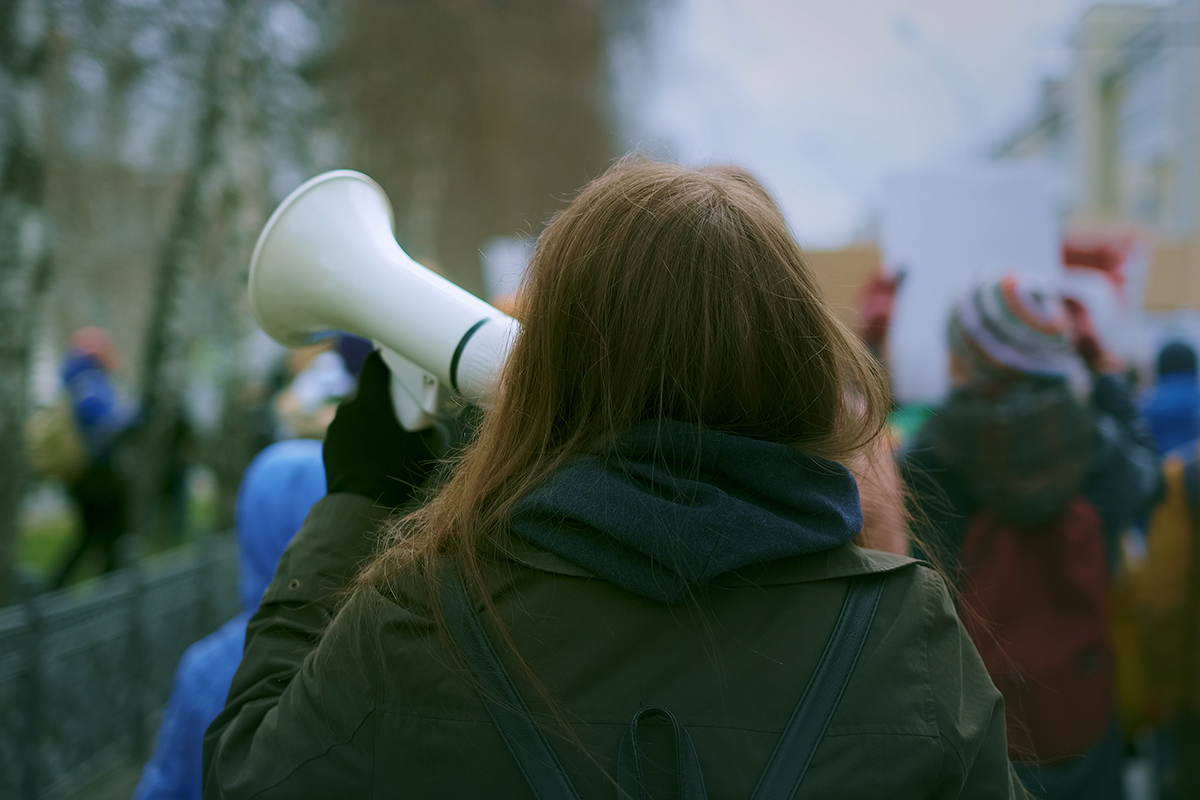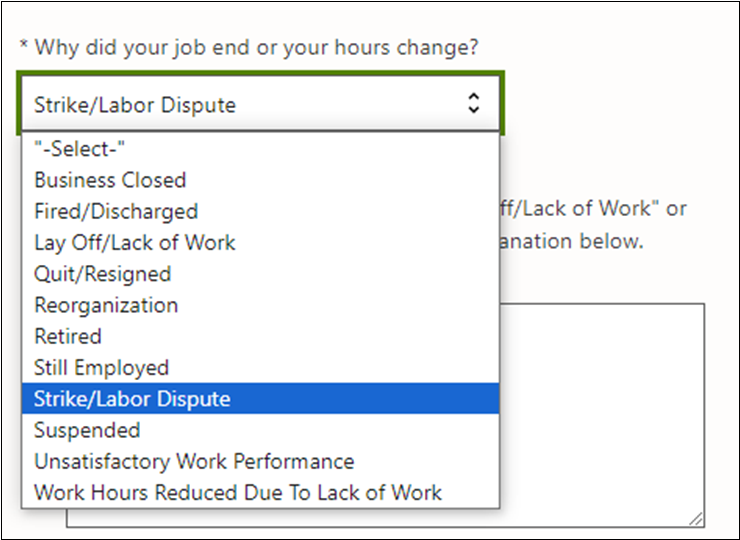Labor Disputes and Strikes

If you are out of work because of a labor dispute or strike, then you may qualify for unemployment benefits. A labor dispute generally arises as part of an organized strike by a union. This information on labor disputes does not, for example, apply to an individual "at will" employee who is having a disagreement with their employer.
The NJ Department of Labor will determine the circumstances surrounding the labor dispute to assess if you qualify. Claimants must also meet all other unemployment eligibility criteria.
When you are adding employment information and get to the question labelled “Change in Employment,” select “Union Strike or Union Lockout by Employer” as the reason for separation. Once you select that option, please explain the reason for the strike in the box “Please share more details below.”

Here is a step-by-step guide on applying for unemployment benefits.
A “stoppage of work” is a substantial reduction in work due to a union strike or lockout by employer. Your employer is considered to have a “stoppage of work” if they cannot meet 80% of their normal production of goods or services.
- If the Division determines that the union strike or lockout by employer did not cause a stoppage of work, you should be eligible for UI benefits with no waiting period.
- If the Division determines that the union strike or lockout by employer did cause a stoppage of work, you should still be eligible for UI benefits but, depending on the circumstances, you may have to wait 14 days before you can receive those benefits.
Remember that you must still meet other eligibility criteria (you need to have enough earnings during the base year, for example) and not be disqualified for some other reason (a termination for gross misconduct, for example) to receive benefits.
If the Division determines that your employer prevented you from working and you meet other benefit eligibility criteria, you should be able to collect unemployment benefits without a waiting period.
Remember that you must still meet other eligibility criteria (you need to have enough earnings during the base year, for example) and not be disqualified for some other reason (a termination for gross misconduct, for example) to receive benefits.
Yes. If the Division determines that the labor dispute is caused by your employer’s failure to comply with a collective bargaining agreement, and you meet all other eligibility criteria for unemployment insurance (you need to have enough earnings during the base year, for example) and are not otherwise disqualified, you should be able to collect unemployment benefits.
Yes. If the Division determines that the labor dispute is caused by your employer’s failure to comply with an agreement or State or federal law pertaining to hours, wages and other conditions of work you should be able to collect unemployment benefits.
Remember that you must still meet other eligibility criteria (you need to have enough earnings during the base year, for example) and not be disqualified for some other reason (a termination for gross misconduct, for example) to receive benefits.
Yes, if you are out of work because of a labor dispute and the Division determines that you were not “locked out,” that the dispute is not caused by your employer’s failure to follow the collective bargaining agreement or a violation of labor law, you should be eligible but your benefits claim will be subject to the 14-day waiting period. However, if the Division determines that your employer has engaged the services of a replacement worker (on either a permanent or temporary basis) for your position, then you will not be subject to the 14-day waiting period.
Remember that you must still meet other eligibility criteria (you need to have enough earnings during the base year, for example) and not be disqualified for some other reason (a termination for gross misconduct, for example) to receive benefits.
When to apply for benefits depends on when you stop working:
- If the labor dispute caused you to work less than full-time (32 hours during the Sunday-Saturday period), then you should file on the first day you would otherwise be working.
- If you have completed your normal hours during the week, but will not work full-time the following week, you should file for benefits on the Sunday following the first week of missed work.
For additional information, please see the Department’s General Information about Unemployment Insurance Frequently Asked Questions.
 Official Site of The State of New Jersey
Official Site of The State of New Jersey